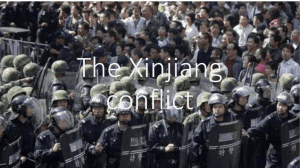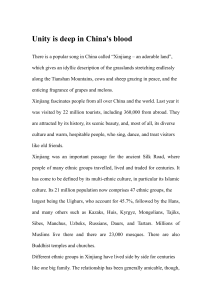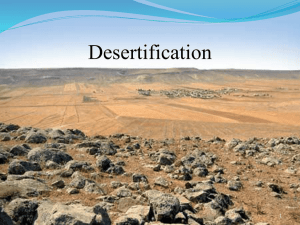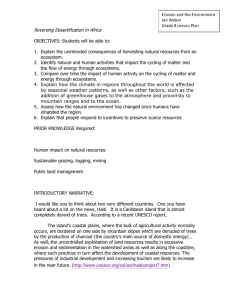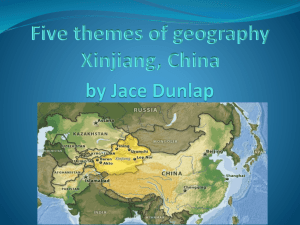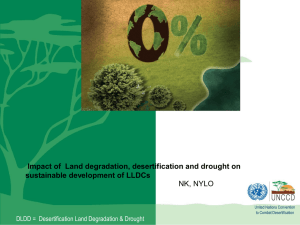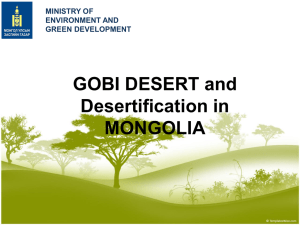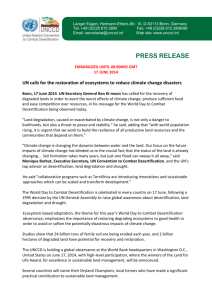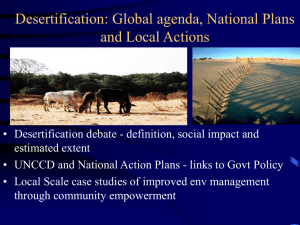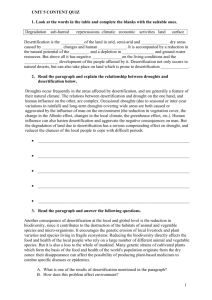Urumqi Forum Press Release - ENGLISH
advertisement
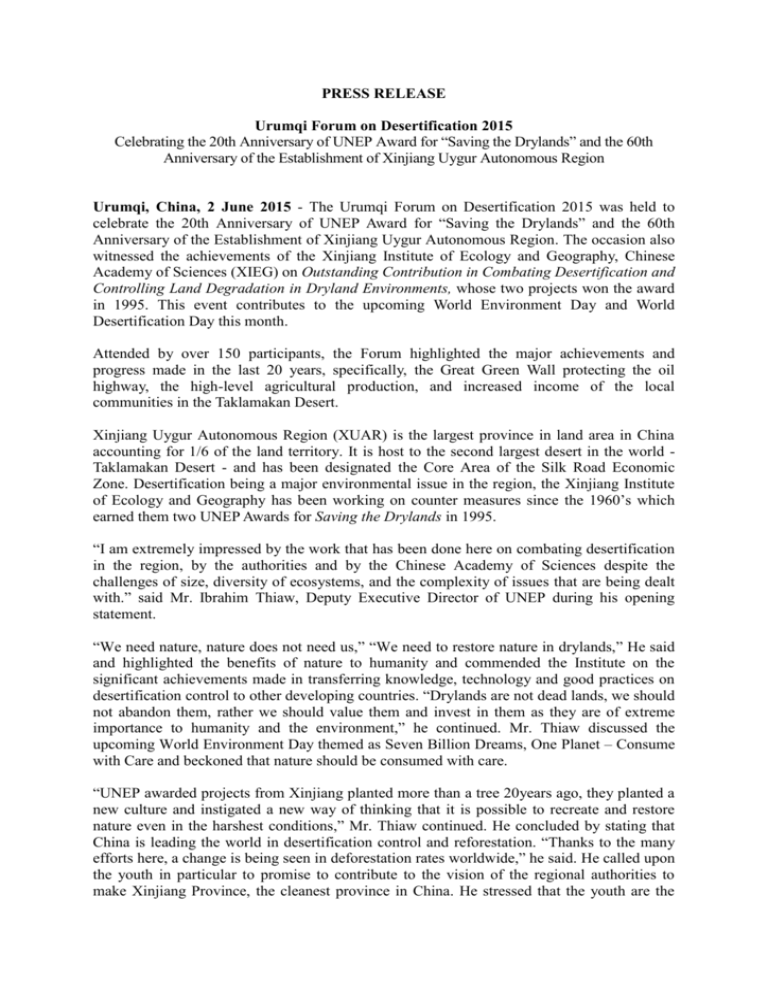
PRESS RELEASE Urumqi Forum on Desertification 2015 Celebrating the 20th Anniversary of UNEP Award for “Saving the Drylands” and the 60th Anniversary of the Establishment of Xinjiang Uygur Autonomous Region Urumqi, China, 2 June 2015 - The Urumqi Forum on Desertification 2015 was held to celebrate the 20th Anniversary of UNEP Award for “Saving the Drylands” and the 60th Anniversary of the Establishment of Xinjiang Uygur Autonomous Region. The occasion also witnessed the achievements of the Xinjiang Institute of Ecology and Geography, Chinese Academy of Sciences (XIEG) on Outstanding Contribution in Combating Desertification and Controlling Land Degradation in Dryland Environments, whose two projects won the award in 1995. This event contributes to the upcoming World Environment Day and World Desertification Day this month. Attended by over 150 participants, the Forum highlighted the major achievements and progress made in the last 20 years, specifically, the Great Green Wall protecting the oil highway, the high-level agricultural production, and increased income of the local communities in the Taklamakan Desert. Xinjiang Uygur Autonomous Region (XUAR) is the largest province in land area in China accounting for 1/6 of the land territory. It is host to the second largest desert in the world Taklamakan Desert - and has been designated the Core Area of the Silk Road Economic Zone. Desertification being a major environmental issue in the region, the Xinjiang Institute of Ecology and Geography has been working on counter measures since the 1960’s which earned them two UNEP Awards for Saving the Drylands in 1995. “I am extremely impressed by the work that has been done here on combating desertification in the region, by the authorities and by the Chinese Academy of Sciences despite the challenges of size, diversity of ecosystems, and the complexity of issues that are being dealt with.” said Mr. Ibrahim Thiaw, Deputy Executive Director of UNEP during his opening statement. “We need nature, nature does not need us,” “We need to restore nature in drylands,” He said and highlighted the benefits of nature to humanity and commended the Institute on the significant achievements made in transferring knowledge, technology and good practices on desertification control to other developing countries. “Drylands are not dead lands, we should not abandon them, rather we should value them and invest in them as they are of extreme importance to humanity and the environment,” he continued. Mr. Thiaw discussed the upcoming World Environment Day themed as Seven Billion Dreams, One Planet – Consume with Care and beckoned that nature should be consumed with care. “UNEP awarded projects from Xinjiang planted more than a tree 20years ago, they planted a new culture and instigated a new way of thinking that it is possible to recreate and restore nature even in the harshest conditions,” Mr. Thiaw continued. He concluded by stating that China is leading the world in desertification control and reforestation. “Thanks to the many efforts here, a change is being seen in deforestation rates worldwide,” he said. He called upon the youth in particular to promise to contribute to the vision of the regional authorities to make Xinjiang Province, the cleanest province in China. He stressed that the youth are the future, and should pledge to not waste unnecessarily, not to contribute further to increased deaths caused air pollution and strive to create a clean Xinjiang. Mr. Aierken Tuniyaki, Vice Chairman of the People’s Government of Xinjiang Uygur Autonomous Region in his opening remarks stressed that Xinjiang has spared and will continue to spare no efforts in combating desertification, improving people’s livelihoods ad advancing economic development in a sustainable way to generate harmony and stability in Xinjiang. Prof. Cao Jinghua, Deputy Director General of Bureau of International Cooperation, CAS speaking on behalf of the Vice President of Chinese Academy of Science Mr. Yaping Zhang, extended special thanks to the researchers of the Institute for all their efforts in the works to combat desertification. He noted that Chinese efforts have contributed significantly to global action on desertification through its various projects and initiatives. He briefly discussed some of these initiatives including the creation of botanical gardens, encroachment of rivers, setting of field monitoring stations and forest projects along the highway, and emphasized their importance to ecological development in Xinjiang. Prof. Chen Xi, Director General of XIEG stressed that the UNEP awards has been a significant encouragement to continue the work being done and has opened new windows of opportunity of collaboration with UNEP, specifically with the newly established International Ecosystem Management Partnership. Prior to the Forum, Mr. Ibrahim Thiaw met with the Governor of Xinjiang Uygur Autonomous Region (XUAR), Mr. Shohrat Zakir, and congratulated the region on the 60th Anniversary of its establishment and exchanged views on combating desertification and restoring degraded drylands, not only in Xinjiang but in the rest of the world. They both recognized and appreciated the work of the 436km Green Corridor and its future role involving desertification control. They also touched upon important issues such as cooperation on clean energy, China-African cooperation and climate change. The Forum was sponsored by the Xinjiang Uygur Autonomous Region (XUAR), Chinese Academy of Sciences (CAS) and the United Nations Environment Programme (UNEP). It was organized by the Xinjiang Institute of Ecology and Geography (XIEG) and UNEPInternational Ecosystem Management Partnership (UNEP-IEMP).
